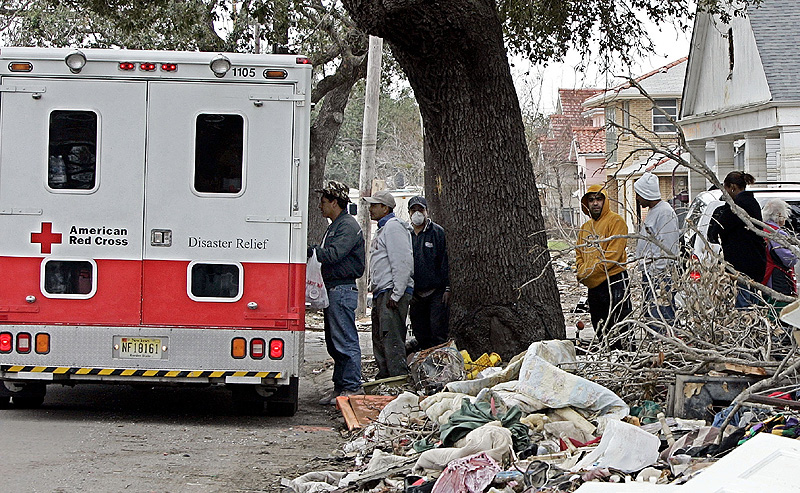Red Cross announces major overhaul
New York ? The American Red Cross, stung by criticism of how it handled Hurricane Katrina and the Sept. 11 attacks, announced plans Monday for a major overhaul that would include slashing its 50-member board and reducing the influence of presidentially appointed overseers.
The reforms are intended to ease recurring friction between board members and Red Cross management and address complaints that the organization was at times too bureaucratic and unaccountable after Katrina and the attacks.
Some of the changes in the 60-year-old governance structure can be implemented unilaterally, but the main proposals will require approval from Congress for revisions in the organization’s congressional charter.
A key senator who has pressed the Red Cross for reforms, Chuck Grassley, R-Iowa, praised the proposals and expressed hope that Congress would swiftly approve them. “It’s good news that the Red Cross’ board recognized that a Band-Aid won’t do,” Grassley said.
The changes, approved without opposition by the existing board, result from an unprecedented six-month review by a panel of outside experts.
Highlights of the reforms that would need congressional approval include:
¢ Explicitly delegating responsibility for day-to-day operations to the Red Cross’ full-time professional management, with the board focusing mainly on longer-term strategic oversight.
¢ Reducing the board of governors to between 12 and 20 members by March 31, 2012. An interim goal is to have no more than 25 members by 2009.

People line up for food provided by the American Red Cross in the Lakeshore neighborhood of New Orleans in a December file photo. Sparked by criticism of its response to Hurricane Katrina, the American Red Cross released plans Monday for sweeping changes in its governance structure, such as reducing its 50-member board by more than half.
¢ Creating a single category of board members. Now, most are elected by local chapters, some are elected by the board, and others, including the chairman, are appointed by the U.S. president.
¢ Shifting seven of the presidentially appointed governors – all but the chairman – into a newly created Cabinet Council that will be merely advisory.
The board would also ask management to improve and expand awareness of the organization’s whistleblower process among Red Cross employees and volunteers. Grassley, among others, had urged this step, saying the organization’s instinct in the past was to play down internal problems instead of confronting them.
“This is a historic day for the American Red Cross,” said the board’s current chairwoman, Bonnie McElveen-Hunter. “We will succeed together to become the Red Cross the American people expect and deserve.”
The 125-year-old charity was by far the biggest player in responding to Hurricane Katrina, raising $2 billion, mobilizing 235,000 volunteers and helping hundreds of thousands of displaced people. Yet it was sharply criticized for responding too slowly in some low-income, minority areas, for over-reliance on inexperienced staff, and for reluctance to work closely with other nonprofits.
The Red Cross itself, in a candid internal report, acknowledged that shortcomings included overwhelmed volunteers, inflexible attitudes and inadequate anti-fraud measures.







